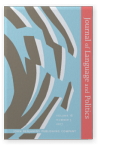Vol. 16:3 (2017) ► pp.434–452
Torture laid bare
Semantics and sanctions
Torture, while internationally sanctioned, is not well-defined. This paper sets out a Minimal English definition of the crime of ‘torture’ in international law. The four elements of torture are: (1) infliction of severe pain and suffering (2) acting with intent (3) for a purpose (4) by the state. The connection between intention and outcome is considered in the light of presumptions. I then briefly consider the concept of ‘lawful sanctions’ and the UN Standard Minimum Rules that apply to the treatment of prisoners to establish a baseline against which allegations of torture can be measured. Finally, I argue that current regimes of British benefit sanctions, whereby social welfare payments are stopped, may in some cases constitute torture. This argument considers the effects of sanctions and the discourses and ideologies attached to social welfare claimants.
Article outline
- 1.Introduction
- 2.The torture texts
- Severe pain and suffering
- Purpose
- Intent
- Agent of the State
- 3.Minimal English
- 4.‘Torture’ in minimal English
- (Mis)translation
- Some notes on ‘intention’
- 5.Lawful sanctions and Minimum Rules
- 6.Are benefit sanctions torture?
- 7.Invisible torture
- 8.Conclusion
- Acknowledgements
- Note
-
References
